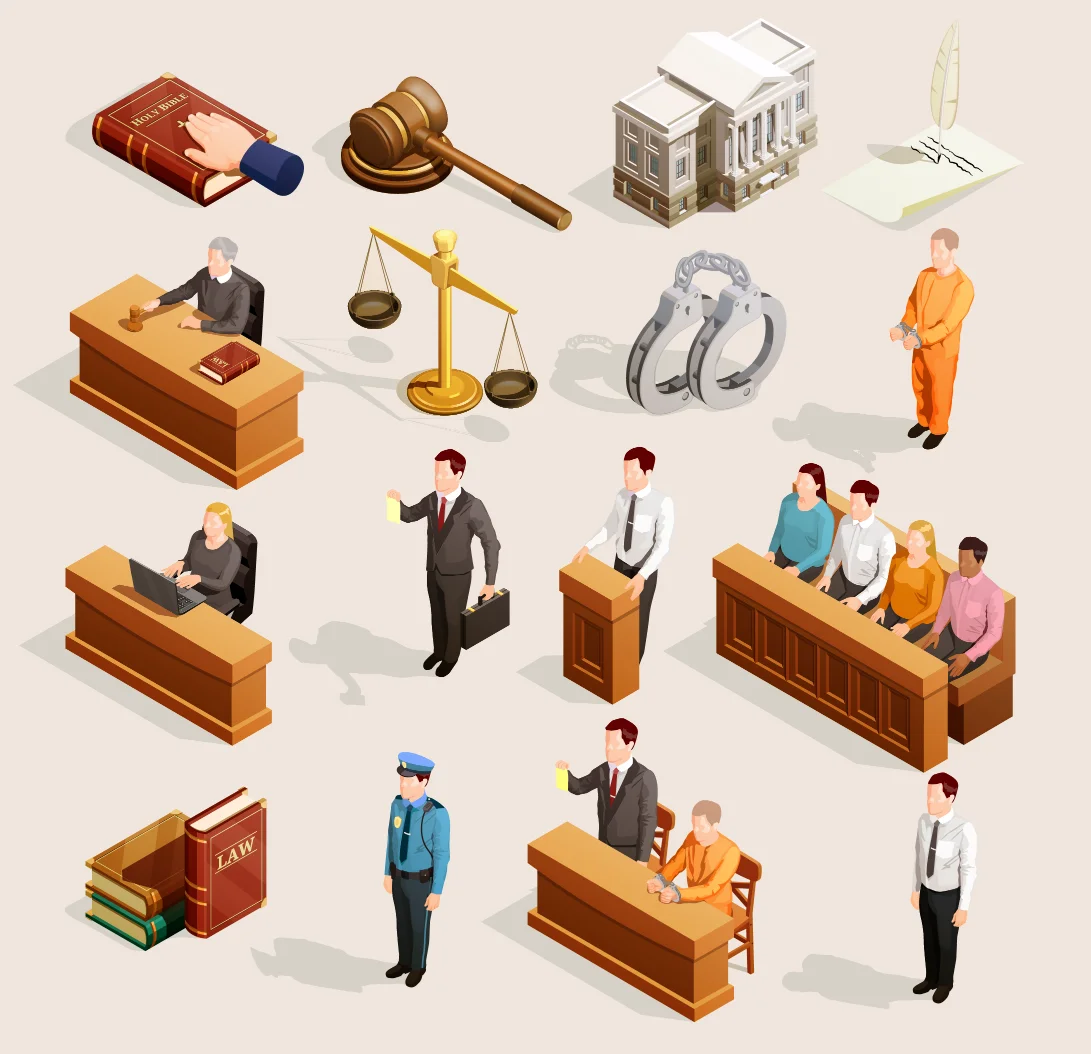South Korea’s prosecutorial system has been at the center of public and political discourse for decades, embodying a microcosm of the challenges inherent in balancing democracy and the rule of law. At the heart of this debate is the unique power wielded by prosecutors, who possess both investigative and prosecutorial authority—an arrangement that critics argue consolidates too much power in a single institution. As South Korea pushes forward with prosecutorial reforms, the debate offers a profound lens through which to examine the philosophical concept of the state’s monopoly on violence and its implications for justice, democracy, and governance.
At the core of prosecutorial authority lies a pivotal function of the state: the monopoly on violence. German sociologist Max Weber famously described the state as the entity that successfully claims the exclusive right to legitimate physical force within a given territory. This monopoly is not confined to overt physical violence but extends to its legal and institutional manifestations, including the power to investigate, charge, and prosecute individuals.
South Korea’s Prosecutorial Power in Practice
In South Korea, prosecutors serve as a conduit for this monopoly. Their decisions to bring charges against individuals or entities initiate legal processes that can curtail liberty and impose significant consequences. This central role situates prosecutorial authority at the intersection of law enforcement and judicial proceedings, making it an essential mechanism for upholding societal order.
However, this power is not without its challenges. While it underpins the state’s ability to enforce laws, it also carries the inherent risk of abuse, particularly in systems where checks and balances are insufficiently robust. Prosecutorial authority thus reflects a broader tension within modern governance: ensuring the impartial and consistent application of laws (rule of law) while preventing the concentration of power (democracy).
In South Korea, prosecutors wield unparalleled authority, holding both investigative and prosecutorial powers. This concentration has enabled the institution to act decisively in high-profile corruption cases and other complex investigations. However, the same authority has also been criticized for its susceptibility to political interference and selective enforcement.
Critics argue that the prosecutorial system’s structure creates fertile ground for abuses of power. Allegations of selective prosecution, where decisions to indict or decline charges align with political or institutional interests, have undermined public trust. High-profile cases involving political figures—both opposition leaders and those in government—have fueled perceptions of bias.
Moreover, the consolidation of power has led to concerns about a lack of transparency. Unlike systems where investigative and prosecutorial roles are separate, South Korea’s model affords prosecutors significant control over how cases are built, investigated, and ultimately adjudicated. Such centralization risks compromising the integrity of legal proceedings.
A Legal Philosophy Perspective
The challenges posed by South Korea’s prosecutorial authority invite reflection through the lens of legal philosophy. Two key principles—rule of law and democracy—serve as touchstones for evaluating the system’s strengths and weaknesses.
The rule of law demands that laws are applied consistently, transparently, and without prejudice. When prosecutors act impartially, their authority can serve as a cornerstone of justice. However, when this power is wielded selectively, it undermines public confidence in the fairness of the legal system. This tension between impartiality and discretion is a recurring theme in debates over prosecutorial reform.
Natural law theorists, such as John Locke, emphasize that legal authority must align with principles of justice and equity. From this perspective, prosecutorial actions must not only adhere to codified laws but also reflect broader societal values. Conversely, legal positivists argue that the legitimacy of prosecutorial decisions stems solely from their adherence to established legal frameworks. Both views underscore the need for robust checks on prosecutorial authority.
Democracy relies on the decentralization of power and the prevention of authoritarian tendencies. Philosophers like Montesquieu have long advocated for the separation of powers as a safeguard against the abuse of authority. In South Korea’s context, critics argue that the lack of meaningful oversight mechanisms has concentrated prosecutorial power to an extent that risks undermining democratic principles.
Comparative Analysis of Prosecutorial Systems
| Country | Structure of Prosecutorial Power | Relationship Between Investigation and Prosecution | Key Features | Challenges |
|---|---|---|---|---|
| United States | Decentralized | Investigation by police; Grand Jury checks prosecution | Grand Jury system ensures evidence review before indictment; elected prosecutors add accountability | Risk of politicization due to electoral system |
| United Kingdom | Centralized (Crown Prosecution Service) | Police investigate; CPS decides prosecution | Clear separation of investigation and prosecution; emphasis on public interest | Potential delays due to separation of functions |
| Germany | Centralized | Cooperation between police and prosecutors | Mandatory prosecution ensures consistency and impartiality | Risks of political interference in some cases |
| Japan | Centralized | Prosecutors control both investigation and prosecution | High conviction rates due to careful case selection; reputation for integrity | Limited checks on prosecutorial discretion |
| South Korea | Centralized | Prosecutors handle both investigation and prosecution | Strong prosecutorial power allows decisive actions in complex cases | Allegations of selective prosecution and political bias |
South Korea’s prosecutorial system, characterized by a concentration of investigative and prosecutorial powers, has faced sustained criticism for its potential susceptibility to bias and political interference. Drawing from international practices and philosophical principles, several targeted reforms could address these challenges and enhance the system’s transparency, accountability, and fairness.
One of the most significant reforms would involve separating investigative and prosecutorial functions, akin to the model employed in the United Kingdom. In this system, police conduct investigations independently, while the Crown Prosecution Service (CPS) evaluates the evidence and decides whether to proceed with prosecution. Implementing a similar structure in South Korea could mitigate concerns about unchecked prosecutorial power and reduce the risk of overreach. By creating a clear division between these roles, transparency would improve, ensuring that prosecutorial decisions are made based on evidence rather than influenced by investigative biases.
The introduction of checks and balances within the prosecutorial process is essential to mitigate risks of bias or selective prosecution. Adopting mechanisms such as a Grand Jury system, as seen in the United States, could provide an additional layer of review, requiring prosecutors to present their cases before a jury of citizens to determine if sufficient evidence exists to indict. Alternatively, independent oversight committees composed of legal experts and public representatives could review prosecutorial decisions, ensuring impartiality and fostering public trust. These measures would create institutional safeguards against abuse of power.
South Korea could consider implementing a principle of mandatory prosecution, similar to the German model. Under this framework, prosecutors are legally obligated to pursue cases when sufficient evidence exists, reducing the risk of selective prosecution. This approach emphasizes consistency and impartiality, reinforcing the principle that all individuals are equal under the law. However, safeguards would need to be in place to prevent overburdening the system with frivolous cases and to ensure that prosecutorial resources are focused on cases of significant public interest.
To rebuild public trust in the prosecutorial system, reforms must prioritize democratic oversight and transparency. This could involve measures such as regular reporting to independent bodies, public access to prosecutorial guidelines, and increased accountability for prosecutorial decisions. By engaging citizens in the oversight process and ensuring that prosecutorial actions are transparent, these reforms would align the system more closely with democratic principles, fostering greater confidence in the integrity of legal processes.
Reforming South Korea’s prosecutorial system requires a multifaceted approach that balances the need for strong enforcement mechanisms with the principles of accountability and impartiality. By drawing from international models and embedding these changes within a framework of transparency and oversight, South Korea can address public concerns, reduce risks of abuse, and strengthen the foundations of its rule of law. These reforms represent not only an opportunity to modernize the prosecutorial system but also a crucial step toward reinforcing public trust in the nation’s democratic institutions.



